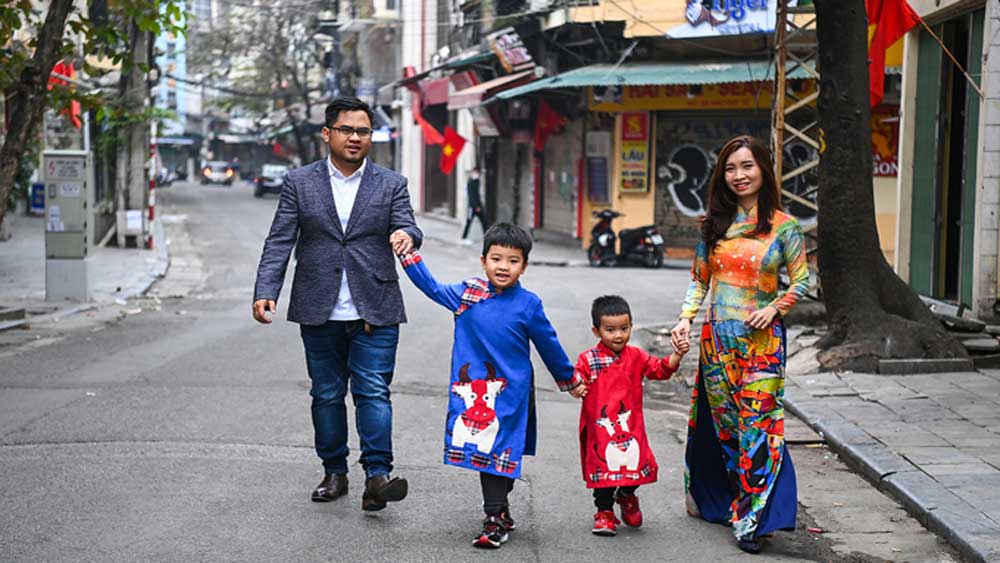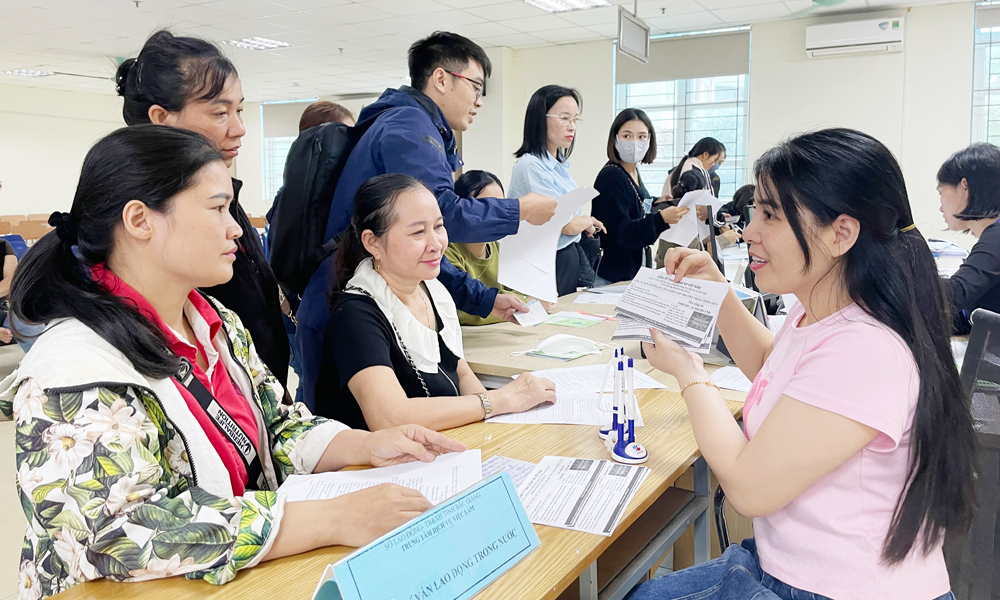Vietnam climbs up in global happiness ranking
Vietnam scored 5.411 points, up from the 5.353 it got last year, according to the latest report released by the Sustainable Development Solutions Network, a global initiative launched by the United Nations in 2012.
 |
|
A family in Hanoi on their way to relatives’ homes on the first day of the Lunar New Year, February 12, 2021. |
Using data from a Gallup World Poll, the ranking measured the happiness level in 149 economies across the world, based on six factors: GDP per capita, social support, healthy life expectancy, freedom to make life choices, generosity, and absence of corruption.
In Southeast Asia, Vietnam’s position was better than Malaysia (81), Indonesia (82), Laos (100), Cambodia (114) and Myanmar (126). It ranked behind Singapore (32), Thailand (54th) and the Philippines (61).
Among the six factors, Vietnam performed best in freedom to make life choices, ranking 9th globally, while its generosity factor fared worst, at 112nd, with Vietnamese people deemed less generous than neighboring peers.
Life expectancy at birth in Vietnam is 68 years, putting the country in 50th place, while Singapore tops the world at 77 years, the report said.
Vietnam ranked 67th in social support and 98th in per capita GDP.
The country's per capita income in 2020 was at $2,750, nearly 1.3 times higher than $2,109 in 2015.
In terms of corruption perception, Vietnam was in 68th place, much higher than Asian peers like South Korea and Japan.
Vietnam has been engaged in prolonged corruption spearheaded by Party chief and State President Nguyen Phu Trong. The crackdown has seen several high-profile government officials, top military officers and businessmen arrested and jailed for crimes from graft to money laundering.
Finland took the top spot in the ranking as the happiest country in the world, followed by Iceland and Denmark.
Countries at the bottom of the list were those afflicted by extreme poverty and violence, like Zimbabwe, South Sudan and Afghanistan.
This year’s ranking was collated slightly differently this time because of the Covid-19 pandemic.
Not only were researchers unable to complete face-to-face interviews in a number of countries, they also had to switch things up by focusing on the relationship between well-being and Covid-19.
Source: VnExpress
 Bắc giang
Bắc giang










Reader's comments (0)